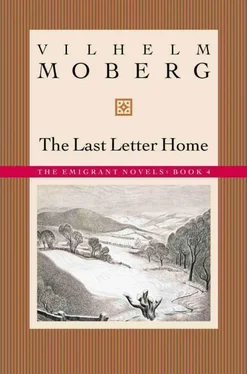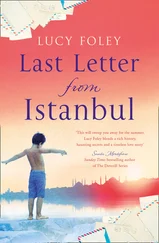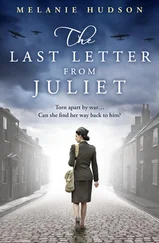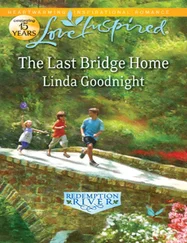The pain cut through his back, and he stiffened at once. He was unable to raise himself. This happened frequently. Slowly, cautiously, he sat down in the grass beside the grave. He must sit a few moments until the pain eased.
Around him the world was silent. A faint sighing in the maple crown above Kristina’s grave, like calm, quiet breathing. The blades of grass bent gently in the soft wind, rose as gently again. Down on the lake, below the cliffs, a flock of ducklings played swing on the waves; the eternal motion of the water; the waves broke against the cliffs, were diffused, and glided back into the lake, returned again to wash the same stones. They moved as they had done since the beginning of time.
Not so for a human being; he did not move as easily today as yesterday. To lie in the earth, or crawl over it — which was preferable? When he entered the cemetery gate he had read the words above it, the promise they held out for him, the gift of peace. He wanted so much to believe that this good promise had been fulfilled for all those who were buried here, that it would be fulfilled for him too. This was his wish every day: Afterward no more suffering.
Karl Oskar sat in the grass at his wife’s grave, listening to the rustling in the silver maples, to the ceaseless purl of the lake surf. Here was a good, peaceful place. Toil and strife were ended for those having their abode here. Nothing more could happen to them.
Nothing more could happen to Kristina.
While alive she had felt and understood something he could not feel and understand: She believed fully they would meet after death. She spoke of it many times the last spring she was alive. Then everything would be as before between them. But perhaps she had sensed her time would not be long. One night, after they had enjoyed each other, she had said to him: I don’t want to be alone in eternity. I pray to God we’ll meet afterward. We will meet again. When we can’t die any more.
WE MEET AGAIN
With his own hand he had carved those words in the oak cross. He had put them there because he knew Kristina wanted it. After all, they were her own words. She had said them to him, he had inscribed them as he remembered them. It was Kristina herself who had written over her grave the words of meeting.
She had been so afraid they wouldn’t meet afterward that she had been concerned about his eternal salvation.
But how was it after death? What had God prepared? What was His plan for the human beings he had created? No one could answer that question for sure, no one could know for sure about any life except this one. Karl Oskar understood neither the eternal bliss of heaven nor the eternal suffering of hell. His understanding was not sufficient.
But it was good to sit here and read those three words on the cross, Kristina’s own words. Then he could also hear them from her mouth. Those, or others with the same meaning. She was not in doubt, or hesitant, when she said: We meet again. She was sure, she was convinced they would meet in a life that had no ending.
Perhaps. Perhaps there was a life afterward where they could be together. Another kind of life, not comprehensible to human understanding; perhaps one must die in order to understand it. He did not know. But neither could he deny it; if he denied it he would also have to be sure.
When we can’t die any more. To Kristina eternity was only permanent rest. And she had been so tired the last years of her life; nothing had helped her against that.
Kristina had surrendered herself to God and humbly resigned herself to her fate. But that he had never been able to do, nor would he ever. And it didn’t matter. God treated him anyway as he saw fit — and what could he do about it? The Almighty had bent his back, made his body stoop to the earth, filled him with pains and aches, made a lame wretch of him. But why should he resign himself to this and say it suited him? No, he would always make one more try. A human being was indeed helpless, but he need not resign himself to this, he must always try to live as if he could be of some help to himself.
There had been times when he had been close to giving up. That morning on the Charlotta, when Kristina. . But after that they had lived many years together. And during that time a devoted woman with a good heart had shared his days of toil and his nights of rest, all the joys of youth and health. A better lot a couple could not be granted perhaps. Why must he ask for more? Why wasn’t he satisfied and resigned to the fact that the joys of life were over and would never return? So terribly difficult was it to reconcile oneself to the fact that life was over.
Where did it now belong, his old, worn-out, useless body? It would arrive at this place, that much was certain. Beside his wife’s grave he had reserved enough space for his own resting place; here he would be buried. He was sitting on his own grave. His body would rot and disintegrate beside Kristina’s, in the same earth where she had turned to dust. At least this much was sure: Here they would both meet. That much he knew: The wide silver maple would shade them both. And then nothing more could happen to him either.
Down at the lake the surf played against the cliffs, sank down, and returned. It had done so as long as this water had existed, and would do so as long as it would exist. And this motion without ending was to him like generations growing up and dying. What was the purpose of this repetition — to come and go, to live and die? Why must this happen? Of what use was it?
Like the fading smoke of a dying fire, so seemed to him his days gone by, the good as well as the bad. His body had stiffened in old age’s cold, was withering like the leaves in autumn. Perhaps at last the leaf resigned itself to falling. But it bothered him that he must leave this life without knowing its purpose. In that way it was a disappointment to die.
Karl Oskar sat beside his wife’s grave for a couple of hours. When at last he rose to return home it seemed to him the cross on the grave had started to lean a little. He looked closer; indeed, it was leaning. It was almost twenty-five years since he had put it up, and in that time the ground might change and sink a little. No post in the earth would remain exactly in the same position for that length of time.
He took hold of the cross with both hands. It wasn’t leaning much, only a few inches, but it looked bad on a grave. After he had straightened it he took a few steps back and looked. As far as his eyes could see, the cross stood straight now. Next time he came to the cemetery he would bring a spade and put some support against it.
A last searching look over the grave, then he turned and walked up the path. He took one long step with his healthy leg and two short with the other; he limped back the same way he had come.
The fourth and last of the men who had selected this place returned to live the life still remaining to him.
Charles O. Nelson, the old farmer in the old house, was in his bed while the slow drip of the seconds and the minutes filled his roomy bowl of pain, his long hour of ache. It was persistent today, the auger. He turned a little, tried another position, first on the right side, then on the left; he lay with his legs pulled up, with his legs stretched out. It was the same however he turned and tried, today it made no difference.
Through his window he looked at the big field of wheat in shocks; beyond, toward the forest, they had planted corn which stood tall and straight. The crops he saw from his window would make many loaves of bread, would feed many hungry people. Those crops would not have grown there if he hadn’t lived. Crops would continue to grow out of the earth after he had been buried in it. It was his hands that had changed this piece of ground, and as he thought of all the crops that would be harvested after he was gone, he was well pleased.
Читать дальше












